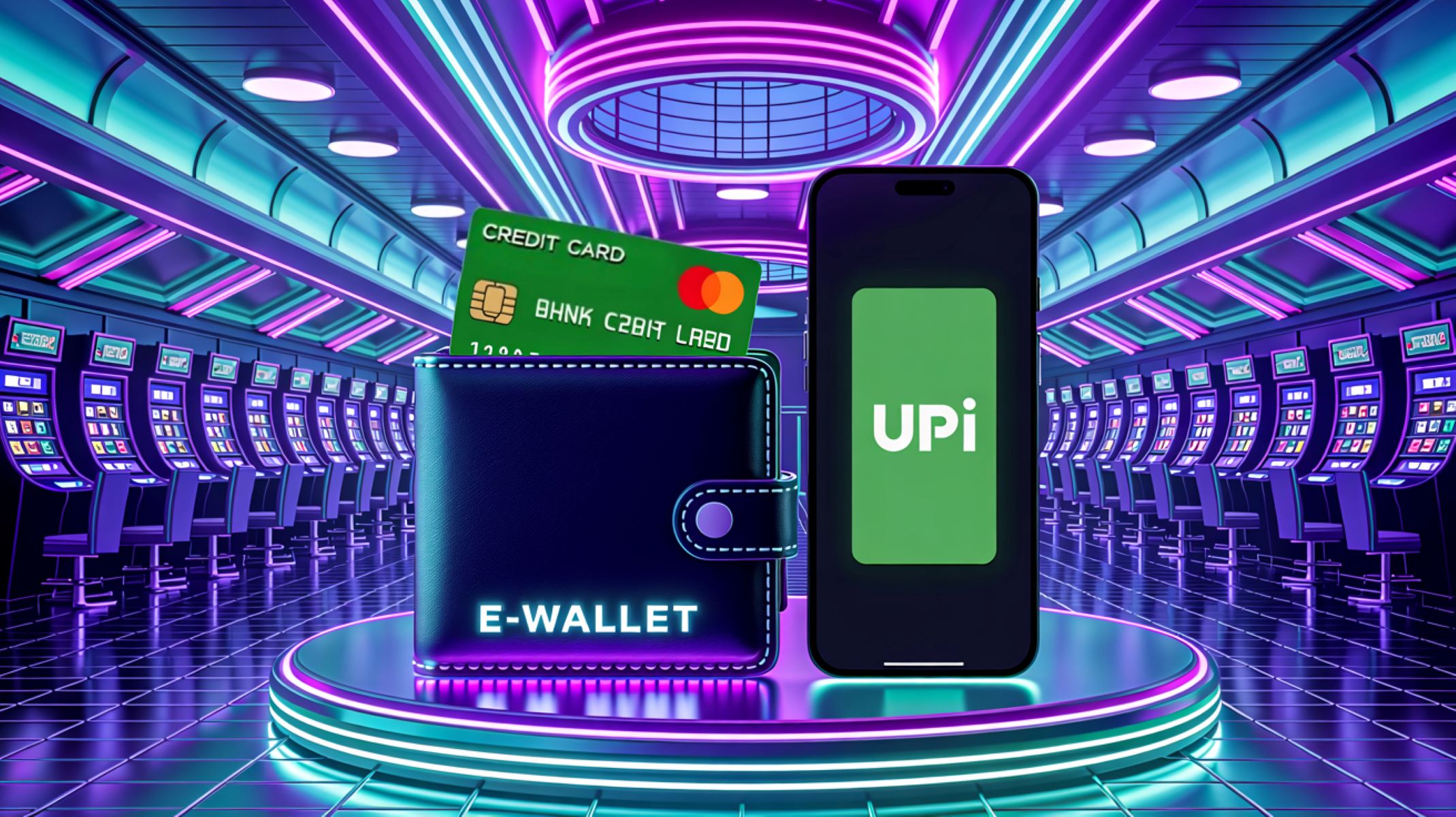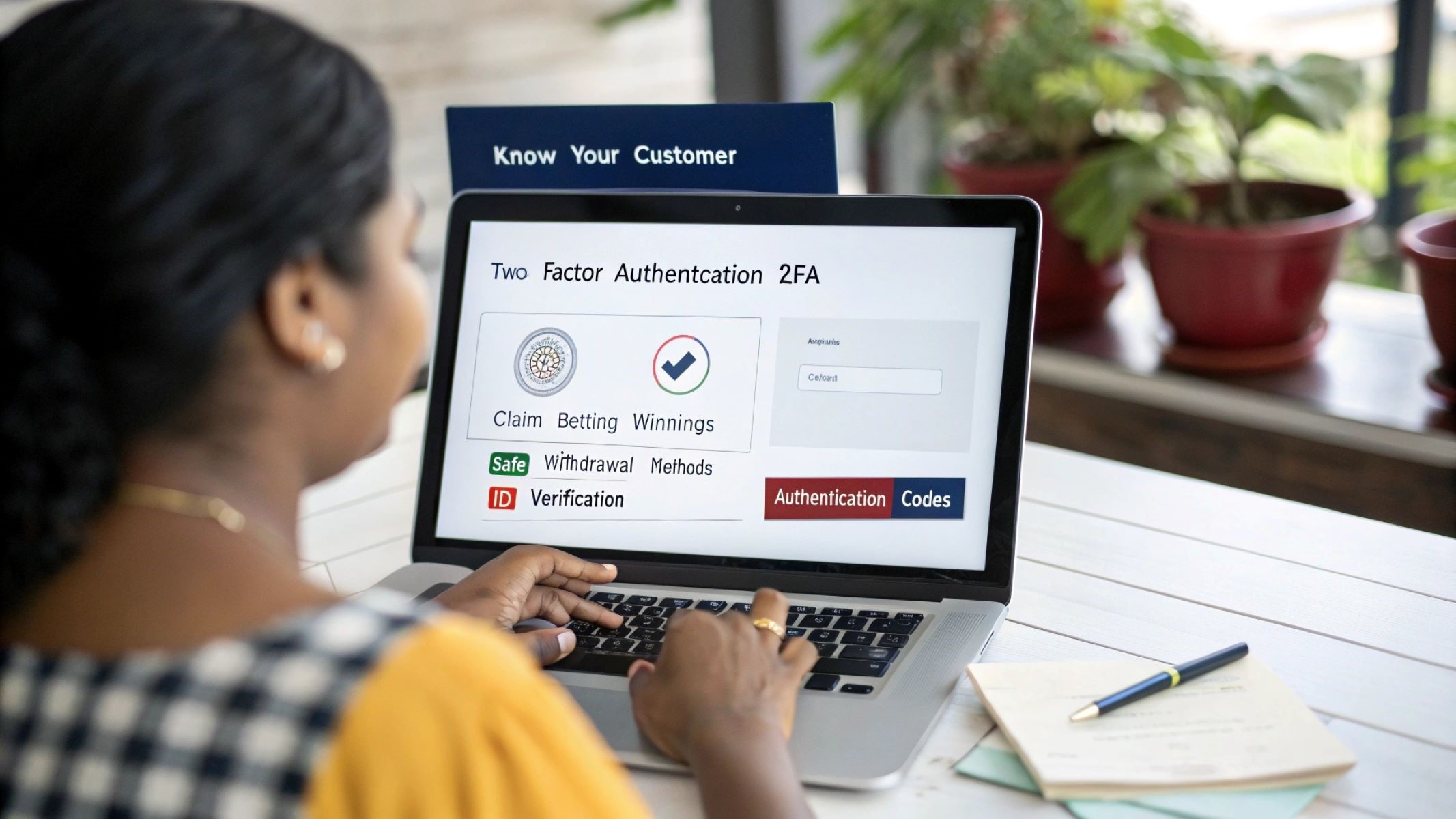If you’ve ever dipped your toes into the world of Indian online casinos, you’ll know how crucial it is to have a smooth, secure, and fast payment method. After all, nobody likes waiting days for a withdrawal or worrying about the safety of their money. When it comes to Indian casino payment gateways, three giants stand tall: UPI, Credit Cards, and E-wallets. But which one suits you best? Let’s dive deep into the battle of payment options and find out!
Why Choosing the Right Payment Gateway Matters in Indian Casinos
In the fast-paced world of online casinos, the payment gateway you choose plays a critical role in shaping your entire experience. It’s not just about getting your money in and out — it’s about doing it securely, quickly, and without unnecessary stress. The right gateway ensures seamless deposits, lightning-fast withdrawals, and, most importantly, peace of mind. Whether you’re a high roller or a casual weekend player, dealing with delays or transaction errors can instantly take the fun out of the game.
In India, the payment landscape is a complex mix of traditional banking, modern digital wallets, and real-time mobile interfaces. Not every method works equally well across all platforms, and some are far more compatible with local banks and regulations than others. That’s why choosing a payment gateway that aligns with your banking habits and casino preferences is essential. A mismatch can lead to declined transactions, blocked accounts, or long withdrawal times that leave you frustrated and anxious.
Security is another major concern. While most top-tier casinos have encrypted systems, your choice of gateway adds another layer of protection — or vulnerability. Some gateways offer two-factor authentication and biometric security, while others rely solely on card numbers or wallet logins. You need to consider how much risk you’re willing to take and whether your chosen method is up to modern cybersecurity standards. It’s your money on the line, after all.
Beyond the technical stuff, there’s also a psychological edge. When you know your transactions are smooth and predictable, you can focus on what matters — the thrill of the game. You won’t be second-guessing every deposit or worrying if your withdrawal will arrive before the weekend. The right payment method doesn’t just move money; it enhances your overall confidence and enjoyment in the online casino world.
Understanding the Basics: What Are Payment Gateways?
| Gateway Type | Primary Function | Security Features | Processing Speed | Ideal For |
| UPI | Direct bank-to-bank transactions | PIN authentication, end-to-end encryption | Instant (both ways) | Players who prefer mobile banking |
| Credit Cards | Credit-based online payments | CVV, OTP, fraud monitoring | Instant deposit, slower withdrawal | Users with credit access and rewards |
| E-wallets | Prepaid digital wallets | Two-factor login, encryption | Instant for most actions | Privacy-conscious frequent players |
| Net Banking | Traditional online bank transfers | Bank-level security protocols | 1–3 hours for deposits | Desktop users and traditionalists |
| Cryptocurrency | Blockchain-based decentralized transfer | Public/private key encryption | Varies (from minutes to hours) | High-stake users valuing anonymity |
The Contenders: UPI, Credit Cards, and E-wallets
When it comes to online casino transactions in India, three main types of payment gateways dominate the scene. Each offers its own blend of speed, security, convenience, and compatibility. Here’s a detailed breakdown of what you can expect from each option — laid out clearly so you can decide what fits your style best.
- UPI (Unified Payments Interface)
UPI is a real-time payment system developed in India that enables seamless bank-to-bank transfers via mobile apps. It’s become a game-changer for Indian users who value instant transactions without any fuss.
With UPI, all you need is a mobile number or a UPI ID. Apps like Google Pay, PhonePe, Paytm UPI, and BHIM make it incredibly easy to use.
UPI offers lightning-fast transactions — both deposits and withdrawals happen almost instantly in most supported casinos.
The security level is high due to built-in authentication methods like MPIN and OTP-based verification for every transaction.
As far as usability goes, UPI is extremely user-friendly, even for beginners. Just a few taps on your phone, and your funds are on the move.
Best of all? There are usually no service fees involved. - Credit Cards
Credit cards have long been a preferred method for online payments and are widely accepted in Indian casinos. Issued by banks, they allow you to deposit funds upfront and pay the amount later.
Popular brands include Visa, Mastercard, and Rupay. Most casinos support these for deposits, and some allow withdrawals too — although that part can get tricky depending on your card issuer.
Deposits are generally instant, but withdrawals can take anywhere from 1 to 3 days, depending on processing times and the casino’s policies.
In terms of security, credit cards offer a decent level of protection. Most banks use CVV codes, OTP verification, and fraud detection systems to prevent misuse.
However, the ease of use is moderate. Entering card numbers, expiry dates, and CVVs every time you make a payment can feel repetitive unless the casino allows you to save your details securely.
Some banks may also block gambling transactions entirely, and fees like cash advance charges or foreign transaction surcharges can apply. - E-wallets
E-wallets are digital payment systems where you can store funds and pay directly without connecting to your bank each time. They act as a layer between your bank and the casino, adding both privacy and flexibility.
Well-known e-wallets in India include Paytm and Mobikwik, while international casinos often support Neteller and Skrill.
Deposits and withdrawals are usually instant, making them one of the fastest ways to move money in and out of a casino account.
They offer strong security with encrypted logins, two-factor authentication, and limited exposure of your banking information to third parties.
Ease of use is excellent — once your wallet is loaded, transactions take only seconds to complete. You can top up the wallet using UPI, bank transfer, or even a credit card.
While most transactions are free, some wallets charge small fees for currency conversion or cross-platform withdrawals. Still, for users who value speed, privacy, and flexibility, e-wallets remain a top-tier choice.
Deep Dive Into UPI: The New Kid on the Block That Took Over India
Unified Payments Interface, or UPI as it’s better known, has completely revolutionized how Indians handle digital transactions. Designed and regulated by the National Payments Corporation of India (NPCI), UPI allows real-time bank-to-bank transfers using just a mobile phone and a unique UPI ID. There’s no need to remember long account numbers or IFSC codes — a simple click and swipe is enough. In a country as mobile-savvy and cash-sensitive as India, UPI’s arrival couldn’t have been more perfectly timed.
For online casino players, UPI is a total game changer. It enables near-instant deposits, meaning you can jump into your favorite slot or card game within seconds of deciding to play. Unlike traditional banking or even some e-wallets, UPI transactions are typically free, which means you don’t lose a chunk of your deposit to service charges. What’s more, UPI is exceptionally secure thanks to its use of MPINs, one-time passwords, and device-level authentication. It’s no surprise that almost every Indian online casino that accepts rupee payments has integrated UPI support in some form.
The beauty of UPI lies not only in its speed and simplicity but also in its widespread accessibility. Whether you’re using a government-backed app like BHIM or popular options like Google Pay or PhonePe, UPI is seamlessly connected with nearly all Indian banks. Its user interface is built to be intuitive, making it a fantastic choice for both tech-savvy gamers and those who are new to digital payments. For casino users who value instant gratification and minimal friction, UPI offers an unbeatable experience.
Still, UPI isn’t entirely without flaws. While deposits are almost always instant, not all online casinos allow withdrawals through UPI, often due to banking regulations and internal compliance policies. Additionally, UPI depends on real-time banking systems — if your bank goes down for maintenance or faces server issues, your transaction could be delayed or fail entirely. That can be especially frustrating when you’re trying to cash out a big win. Despite these rare setbacks, UPI remains one of the most efficient and trusted payment options in Indian online gaming today.
Credit Cards: The Tried and Tested Classic
| Feature | Credit Card Functionality | Pros | Cons | Best For |
| Usage in Casinos | Deposit funds by borrowing from bank within credit limit | Instant deposits, widely accepted across casino sites | Some banks may block gambling-related transactions | Players with bank-issued Visa/Mastercard |
| Popular Providers | Visa, Mastercard, Rupay | Trusted, global providers with good support | Rupay acceptance may vary across international platforms | Indian players using domestic cards |
| Extra Benefits | Cashback, reward points, EMI offers | Adds value beyond just payment functionality | Rewards often don’t apply to gambling transactions | Credit-savvy users looking for perks |
| Fees and Charges | Typically 2–3% + potential cash advance fee | Easy access to funds when needed | High interest if balance isn’t repaid, potential extra fees | Responsible spenders managing monthly bills |
| Withdrawal Speed | 1–3 days (varies by casino and card issuer) | Secure return path to the original payment method | Slower than UPI or e-wallets | Players okay with a little waiting |
E-wallets: The Flexible Middleman
E-wallets have quickly become a favorite among Indian online casino players thanks to their balance of speed, privacy, and convenience. These digital wallets store your money securely online and allow you to make payments instantly without constantly involving your bank account. Instead of sharing sensitive banking details with every casino, you simply log into your wallet, approve the transaction, and you’re done. This buffer makes e-wallets both secure and practical, especially for players who value control and anonymity.
- E-wallets function as an intermediary between your bank and the casino, meaning your actual financial details are never directly exposed to the casino platform. This adds a major layer of protection, especially for cautious players who don’t want to risk card or bank details falling into the wrong hands.
- Popular Indian e-wallets include Paytm and Mobikwik, both of which are widely accepted across the country and offer seamless, real-time transaction capabilities. These apps are especially useful for mobile users, providing lightning-fast access with simple tap-and-pay interfaces.
- For international gaming platforms, Indian players often turn to trusted global providers like Neteller and Skrill. These e-wallets are designed specifically for gambling and gaming, with high acceptance rates across casinos, low processing times, and the ability to hold and convert foreign currencies.
- Speed is one of the biggest advantages of e-wallets. Deposits reflect in your casino account almost instantly, and many wallets also support rapid withdrawals — often within minutes or a few hours. Compared to traditional bank transfers or credit card withdrawals, the time saved is substantial.
- E-wallets offer enhanced privacy, which is a huge plus in India, where gambling is a sensitive topic. Since the casino never sees your actual bank details, you maintain an extra degree of anonymity with every transaction.
- Many e-wallets provide loyalty programs or cashback offers, especially on frequent usage or high transaction volumes. Some even offer exclusive bonuses tied to casino promotions if you deposit using their service.
- Top-up options for wallets are diverse, letting users fund their accounts through UPI, debit/credit cards, or direct net banking. This flexibility ensures you’re never stuck without a way to refill your wallet and keep the game going.
- However, e-wallets aren’t perfect. Some charge nominal fees for withdrawals, cross-border transactions, or currency conversions, especially if you’re playing in international casinos. These charges may be small per transaction but can add up over time.
- Not all Indian casinos support all e-wallets. While Paytm and Mobikwik are widely accepted within India, Neteller and Skrill might only work on specific platforms, especially those licensed offshore.
- Setting up an e-wallet can require extra effort. You’ll need to register, verify your identity, link your funding sources, and sometimes even go through additional KYC (Know Your Customer) steps. For some users, this initial setup can feel like a hurdle.
- In rare cases, withdrawal limits might be lower than with other methods, depending on the e-wallet’s policies or your account tier. It’s something high rollers or frequent players should check before choosing a wallet.
- Customer support experiences vary across e-wallets. While major brands offer 24/7 help and fast issue resolution, smaller or regional wallets may lag behind in terms of user service or response times.




